Loans, Subsidies Approved To Support 301 Affordable Apartments
Redevelopment Authority working to advance three developments to groundbreakings.
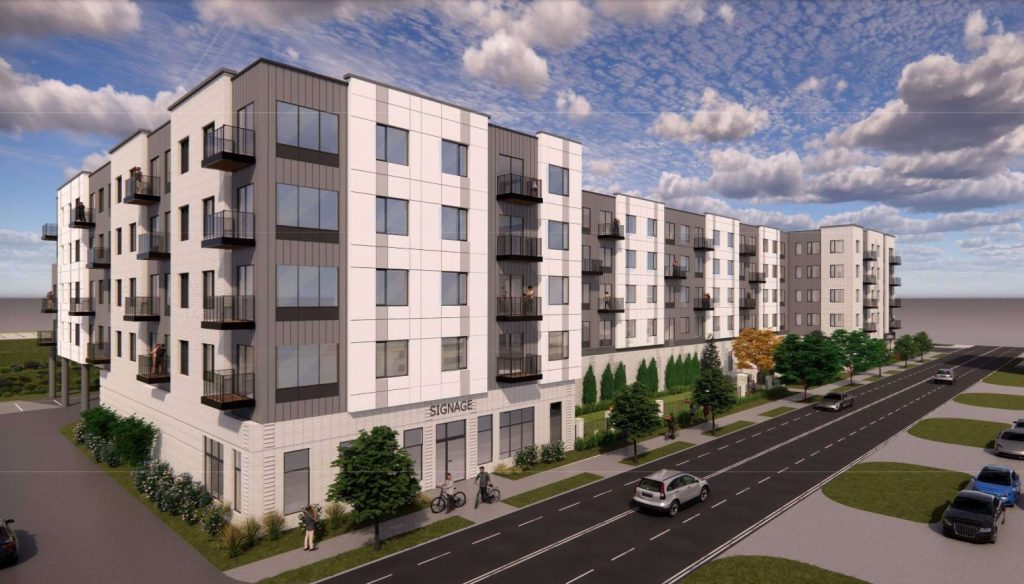
Looking southeast at 200 E. Greenfield Ave. S. Barclay Street is the street in the foreground. Rendering by Continuum Architects + Planners.
The Redevelopment Authority of the City of Milwaukee (RACM) board was busy Wednesday.
The board approved three brownfield cleanup loans and two tax incremental financing (TIF) districts aimed at closing financing gaps in three proposed affordable housing complexes.
In total, the funding would aid the development of 301 affordable apartments in Bronzeville and Walker’s Point. The primary financing source for each of the developments is state-awarded low-income housing tax credits, but the city subsidies and loans play an important role in closing financial gaps caused by rising construction costs and environmentally contaminated sites.
Kin at Freshwater, a 140-unit, $44.4 million proposal for 200 E. Greenfield Ave., would receive a $2 million developer-financed TIF district. The development team, a partnership of Rule Enterprises and Emem Group, would also receive a $700,000 brownfield cleanup loan with a nine-year payback. The site, part of Freshwater Plaza, was once occupied by Grede Foundry.
The TIF subsidy is effectively a property tax rebate, paid over a period of no more than 17 years. The developers would be repaid, with 6% interest, from increased property tax revenue until the $2 million figure is reached. The city is also expected to contribute $1 million via its federal allocation of HOME funds. But it would also recoup $1.2 million by selling the site to the development team. Rule previously won a request for proposals to purchase the property.
“I’m excited to see it go forward and excited to what else you guys do in the future,” said RACM board member Montavius Jones in support of fellow graduates of the Associates in Commercial Real Estate program, which trains minorities and women for careers in real estate.
A total of 113 of the 140 apartments would be set aside at below-market rates for qualifying households through the low-income housing tax credit program. According to a city report, rents for the subsidized apartments would range from $562 to $1,399, depending on income and unit size. Market-rate apartments would be leased for $1,555 to $2,345 per month. The tax credit program requires units to be leased at rates designed not to exceed 30% of a household’s income with benchmark income maximums set from the county median income.
In June, the City Plan Commission recommended approval of a zoning change to advance the project. The Common Council must still approve the change. For more on the project, see our June coverage.
1st and National
Less than a half mile to the north, another affordable housing proposal would receive two brownfield cleanup loans. Bear Development was approved to receive $1.5 million in cleanup loans in the form of a $700,000 long-term loan and a $800,000 construction loan for its 140-unit apartment development at 100 E. National Ave.
“This site is difficult to developer, there is poor soil quality and contaminants that need to be addressed,” said RACM senior environmental project engineer Tory Kress. From 1895 to 1935 it was part of Allis Chalmers, and then home to Barry Trucking from 1945 to 2010. Developer Tim Dixon developed the National Avenue Lofts on the eastern portion of the site in 2011, transferring some of the contaminated soil to the western portion now targeted for redevelopment.
An initial $2 million TIF subsidy was approved in May, with Bear expected to contribute $3 million in equity. But the city continued to negotiate with Bear.
“It helps both groups, which is why we revisited this after the [TIF] was approved,” said RACM assistant executive director Dave Misky. Bear gets to reduce the upfront capital it must put into the development, while RACM will generate income from the two loans, with one being paid off within four years.
For more on the building’s design and how Bear would mitigate environmental issues, see our May coverage. The building is expected to open in 2026.
Bronzeville Apartments
The $29 million Bronzeville Creative Arts & Tech Hub would receive $700,000 from a newly-created TIF district.
“We are really at the final stretch here. These are the last dollars in here with the [TIF],” said developer Michael Adetoro, head of FIT Investment Group.
The four-story development, which includes 60 apartments and 29,000 square feet of commercial space, would replace a collection of city-owned vacant lots and a vacant building along W. North Avenue between N. 6th and N. 7th streets. Forty-eight of the 60 apartments would be leased at below-market rates through the low-income housing tax credit program.
The first phase of the complex is to open in 2025, according to the TIF agreement.
In October 2023, RACM also approved a $700,000 environmental cleanup loan for what was described then as a $21 million project. Federal New Market Tax Credits could be used to support the commercial component of the development.
For more on the proposed complex, see our coverage from Monday when the City Plan Commission approved the design.
Kin Complexity
The proposals approved by the RACM board weren’t without complications. The Kin at Freshwater TIF district is being overlaid on an existing TIF district that supported the larger Freshwater Plaza development, which includes the Freshwater Plaza Apartments, a Cermak grocery store and a series of outlot buildings. The overlay will freeze the incremental value of the new apartment site in the existing TIF district, sequestering future tax revenue growth in the new, single-property district.
“When we underwrite the residential projects, we want to make sure they stand on their own,” said DCD development project manager Lori Lutzka. It will also create flexibility at the end of the life of the new TIF district to fund infrastructure improvements within a half mile and affordable housing citywide.
“It will pay off,” said Lutzka of the original TIF district, created in 2014. The latest posted report, from the end of 2022, shows that the district is on pace to pay off its costs by 2032, nearly a decade before its maximum legal life in 2041.
The two new TIF districts are subject to Common Council approval.
Close observers of city government might notice the absence of a familiar name in the discussions. DCD’s affordable guru Maria Prioletta recently retired after 36 years with the city. Misky and Lutzka praised Prioletta for her longstanding contributions.
Brownfield Cleanup Success
The city continues to be proud of the loans it is making with its Brownfield Cleanup Revolving Loan Fund. It was recently awarded a new infusion of $3.5 million from the Environmental Protection Agency to expand its loan pool, though the city has yet to receive the funding.
“We are the most successful operator of these loans across the country,” said Misky, who noted the city has served as a consultant for others.
The loans are made at low interest rates and designed to spur economic development, and increasingly affordable housing. “Is it successful in that way? It is. Are we making a lot of money? No.” But, crucially, there have been no defaults.
Since 2002, 20 loans have been made with $13.5 million from prior EPA awards. The funding, according to a RACM report, has helped cleanup 290 acres of land and spurred $800 million in private investment.
The latest loans to Bear Development were designed as two different loans with different term lengths to allow the city to continue to grow its impact. “We’re not sending it all out and 20 years we’re not getting it all back at the same time. It helps us balance the portfolio,” said Kress of the two balloon loans.
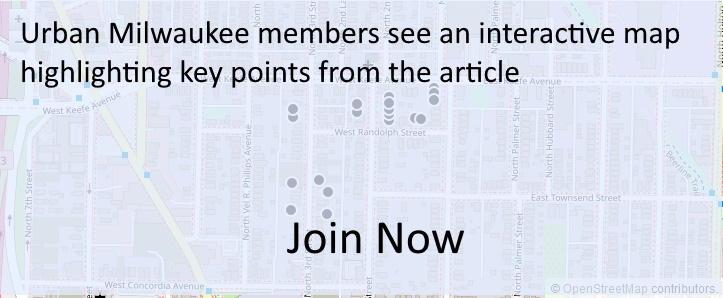
Existing members must be signed in to see the interactive map. Sign in.
If you think stories like this are important, become a member of Urban Milwaukee and help support real, independent journalism. Plus you get some cool added benefits.


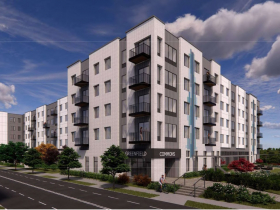
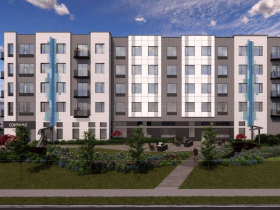
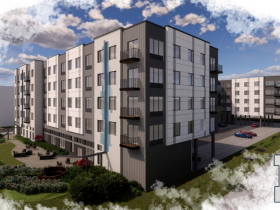
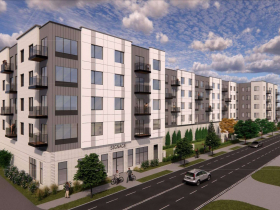
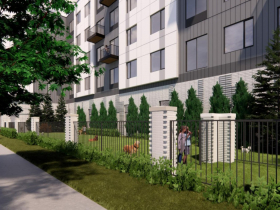
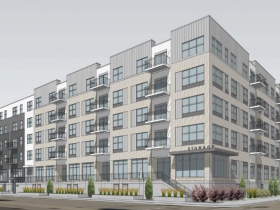
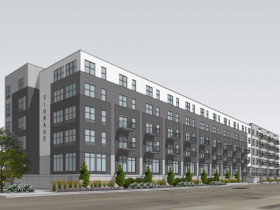
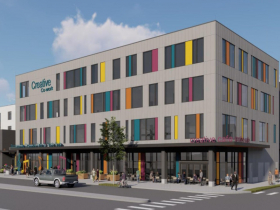
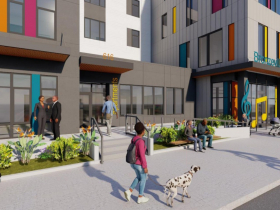
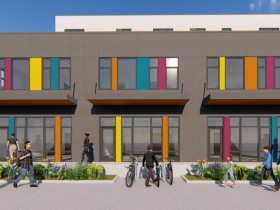
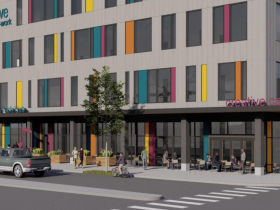
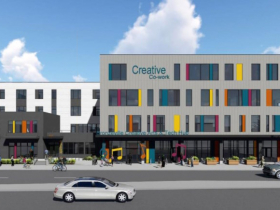
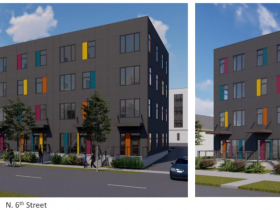




















340 more housing units! Awesome, love seeing this trend. Homes for anywhere between 340-1360 people. Still a long way to go but definitely need to keep this trend up!